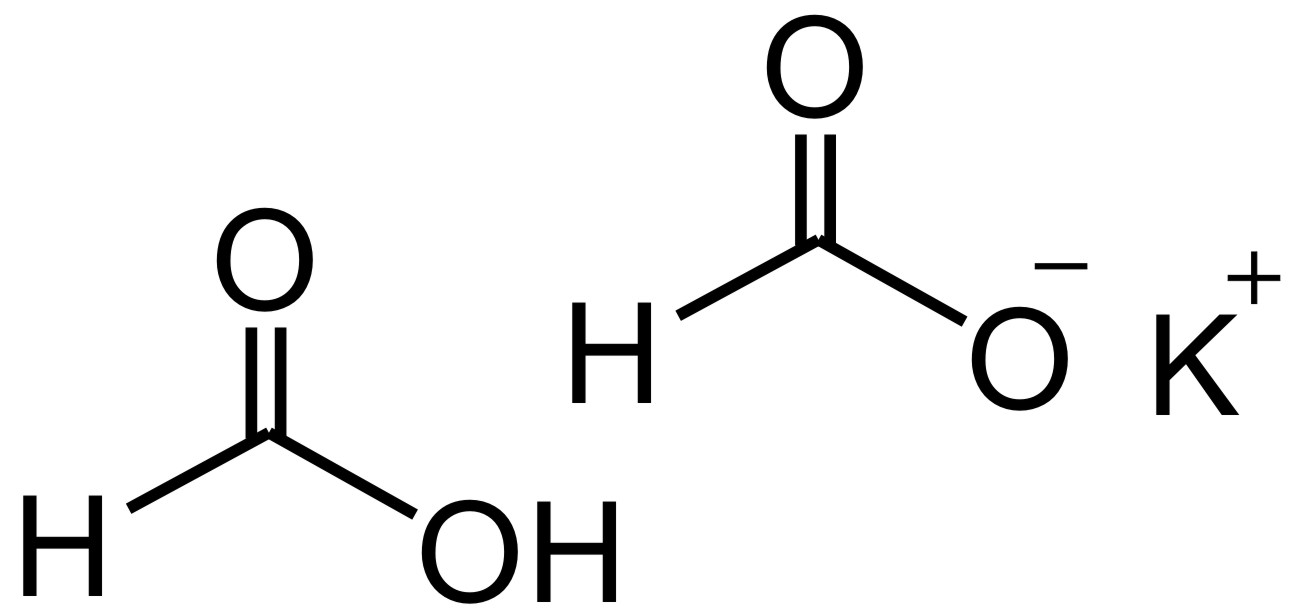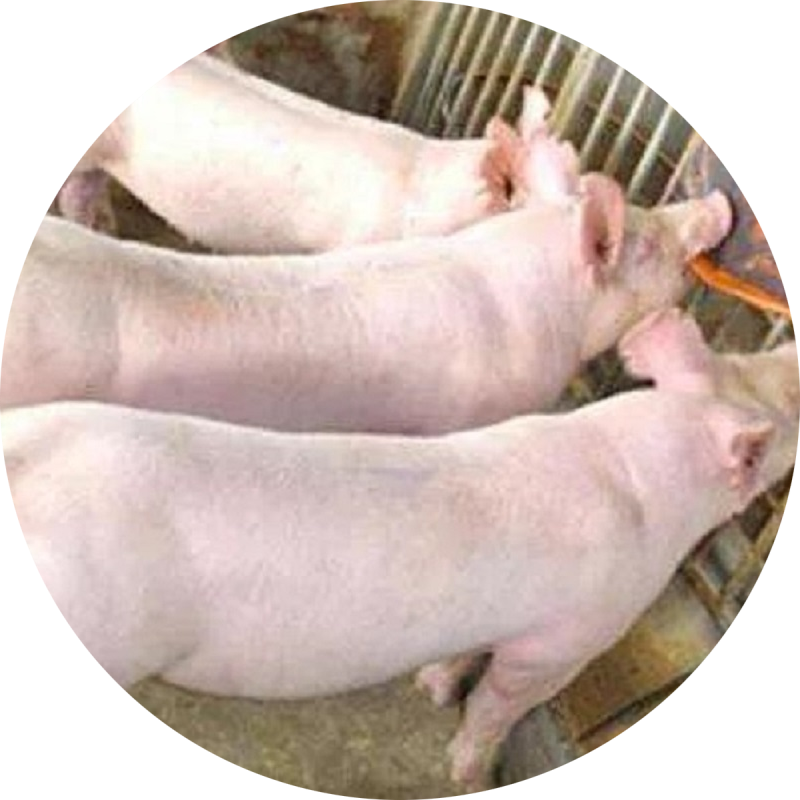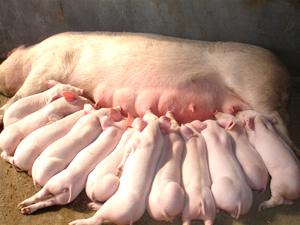Effection of potassium dicarboxylate on intestinal health of piglets
1) Bacteriostasis and sterilization
The results of in vitro test showed that when pH was 3 and 4, potassium dicarboxylate could significantly inhibit the growth of Escherichia coli and lactic acid bacteria, but when pH = 5, potassium dicarboxylate had no effect on lactic acid bacteria and the survival rate of Escherichia coli decreased. Potassium dicarboxylate had inhibitory effects on Salmonella c19-2, c19-12-77, porcine Escherichia coli el and Staphylococcus aureus.
When 0.6% and 1.2% potassium dicarboxylate were added to the diet of weaned piglets, the number of Escherichia coli in duodenum, jejunum, colon and rectum decreased [94]. Adding 0.6% potassium dicarboxylate can reduce the number of Salmonella in feed and feces, and reduce the prevalence of Salmonella and Escherichia coli in pig farms. When 1.8% potassium dicarboxylate was added to the diet of weaned piglets, the number of Escherichia coli in stomach and small intestine decreased by 19.57% and 5.26%.
2) Lower gastrointestinal pH
Potassium dicarboxylate can reduce gastric and duodenal pH. the addition of 0.9% potassium diacid in the diet of weaned piglets can reduce gastric pH (5.27 to 4.92), but it has no effect on colonic chyme pH. The addition of 0.6% or 1.2% potassium dicarboxylate in the diet of 28 day old weaned piglets decreased gastric pH (from 4.4 to 3.4), but had no effect on the pH of duodenum, jejunum, ileum, cecum, colon and rectum. 0.9% and 1.8% potassium dicarboxylate were added to the basal diet of piglets. After feeding for 65 min, the addition of potassium dicarboxylate significantly decreased the duodenal pH, 0.32 and 0.40 in 0.9% group and 1.8% group, respectively. Potassium dicarboxylate can reduce gastric pH, stimulate the secretion of pepsin and improve the digestion and absorption of protein.
3) Promote intestinal morphological integrity
The effects of 1%, 1.5% and 2% potassium dicarboxylate on intestinal morphology of weaned piglets were studied. The results showed that the height of duodenal intestinal paperhair of piglets added with 1.5% and 2% potassium dicarboxylate was significantly higher than that of the control group without potassium dicarboxylate (0.78mm in the control group, 0.98mm in the 1.5% potassium dicarboxylate group and 0.90min in the 2.0% potassium dicarboxylate group), However, the addition of different proportions of potassium dicarboxylate did not significantly improve the intestinal villus height of jejunum and ileum.
Effect of potassium dicarboxylate on performance of Weaned Piglets
1) Promote mineral absorption
The results show that potassium dicarboxylate can promote the absorption of minerals and increase the absorption rates of phosphorus, magnesium, zinc, copper and manganese by 8% - 9%, 3% - 8%, 9% - 17%, 52% - 60% and 6% respectively. The experiment on finishing pigs showed that the addition of 1% potassium dicarboxylate could increase the digestibility of crude protein by 4.34% and the utilization rate of phosphorus by 1.75%. Potassium dicarboxylate can promote the absorption of nutrients and control the formation of harmful substances. Adding 0.9% and 1.8% potassium dicarboxylate to piglet feed can reduce the content of gastric ammonia, and the effect of 0.9% potassium dicarboxylate is the most significant.
2) Improve feed conversion
Adding 1.8% potassium dicarboxylate to the diet of 9-21kg piglets can increase the growth rate of 32.7% and the feed conversion rate of 12.2%, which is equivalent to 40ppm telosin phosphate. When 1.8% dicarboxylic acid was added to the diet of weaned piglets with a body weight of 7kg and the metabolic energy level was 13mj / kg or 14mj / kg, potassium dicarboxylate could increase the body weight of piglets by 5% and 12% respectively; Daily gain increased by 8% and 18% respectively; Feed conversion rate increased by 6%; The average daily feed intake increased by 1% and 8% respectively.
The results showed that potassium dicarboxylate could reduce weaning stress, promote growth and intestinal integrity of piglets.
Post time: Sep-29-2021








